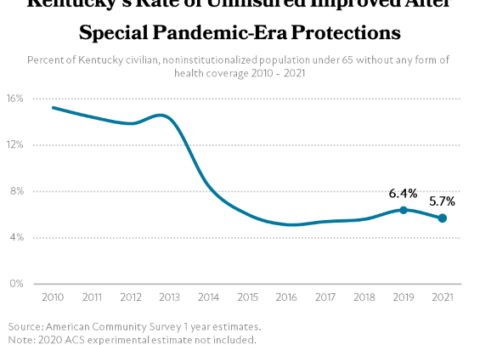Kentucky can take three key steps to better integrate immigrants, including people who are undocumented, into the mainstream economy and foster community well-being, according to a new report from the Center on Budget and Policy Priorities. Giving all residents access to economic opportunity would enable them to earn higher wages, spend more at businesses, and contribute more in taxes that are used to fund schools and other investments critical to a strong economy, the report finds. Harsh anti-immigrant policies, in contrast, harm workers and their children and likely weaken the economy.
“At a time when federal immigration policies are causing widespread harm, it is both sound policy and beneficial to states to pursue supportive polices that assuage fears and provide opportunity for all of their residents — regardless of their national origin, their religion, the color of their skin, or the language they speak,” Senior Policy Analyst Eric Figueroa of the Center on Budget and Policy Priorities explained.
The report highlights 3 important ways Kentucky can connect people who are undocumented to opportunity:
- Driver’s licenses for immigrants who are undocumented can help them get better jobs, make roads safer, and modestly reduce insurance premiums. Fourteen states and D.C. allow immigrants to get driver’s licenses regardless of their status.
- State financial aid for college students who are undocumented will boost the skills and wages of the state workforce. Twenty-one states (including Kentucky) and D.C. have adopted “tuition equity” laws but only 12 of these states plus DC offer state financial aid to students who are undocumented.
- Expanding health coverage to all children, regardless of immigration status, can improve long-term health outcomes, high school and college completion, and long-term economic benefits for the child and for states and local communities. Only six states and D.C. offer health care coverage to all children.
“When all Kentuckians can drive to and from work safely, when all our children have access to health care and families can afford to pay for college, we’re individually and collectively better off,” Communications Director Anna Baumann at the Kentucky Center for Economic Policy said. “What the research shows is that rather than erecting new barriers for immigrants in Kentucky, we should be removing those that already exist and supporting full participation in the economy.”
People who are undocumented make sizable contributions to their state’s economy and finances, as well as their local communities. Kentucky’s estimated 44,000 immigrants who are undocumented pay nearly $37 million annually in state and local taxes, for instance. And households headed by a person who is undocumented pay a larger share of their income in state and local taxes than the top one percent of Kentucky households.

